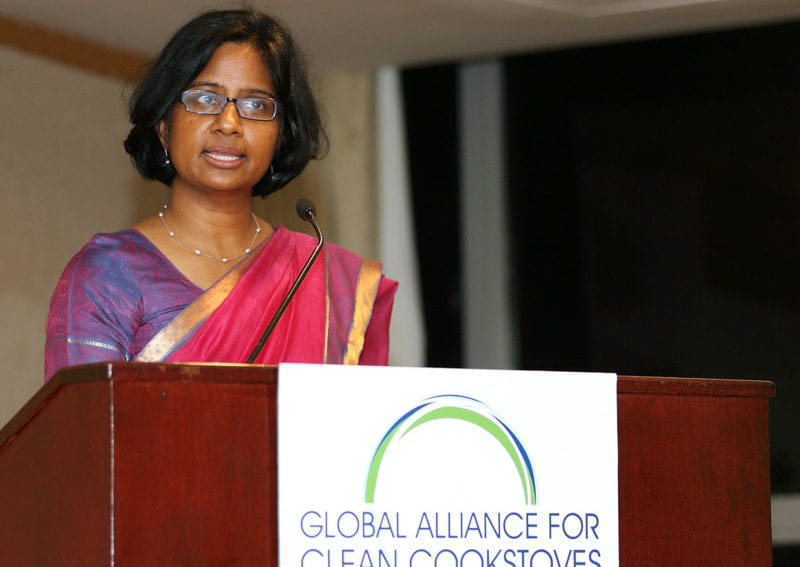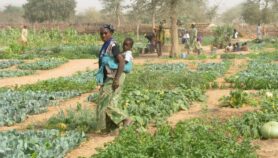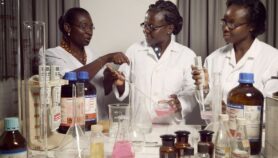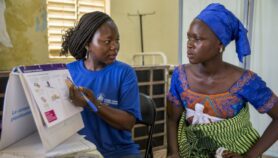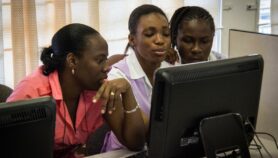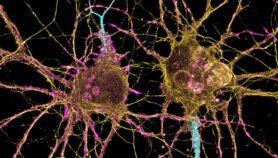By: Bernice Nduta
Send to a friend
The details you provide on this page will not be used to send unsolicited email, and will not be sold to a 3rd party. See privacy policy.
[ADDIS ABABA] Women are the engines driving sustainable development in Africa, yet they also bear the brunt of the negative aspects of one of the key drivers of this growth: energy.
This was the hot topic at a side event involving the civil society and organisers of the 2nd high-level meeting of the Africa-EU Energy Partnership held in Addis Ababa, Ethiopia, last month (11-13 February).
I had an unusual feeling when the communiqué acknowledged the need for stakeholders to be gender-sensitive to promote sustainable energy access in Africa.
“Civil society argues that poverty has a female component and policymakers must develop energy policies that strengthen women’s economic capacity to eradicate ‘feminized’ poverty.”
Bernice Nduta, SciDev.Net
After hearing from Radha Muthiah, the executive director of Global Alliance for Clean Cookstoves, that women and children are the most affected by the health problems associated with cookstove smoke and which contributes to more than 15,700 deaths in Kenya a year, I was left wondering if something could be done about such a plight.
What a relief it was when an upbeat presentation showed rural electrification projects carried out in central Kenya by Practical Action Eastern Africa to help 3,000 households achieve better health through improved indoor air quality.
The households have been targeted with new technologies, piloting the use of the CleanCook ethanol stove in urban settings and providing access to sustainable and efficient household fuels.
At the meeting, Kenya’s Siaya county governor Cornel Rasanga urged civil society to help educate the people on the use of renewable energy, environmental conservation, citing the serious depletion of forest cover in most parts of Africa.
“It is important to encourage the people to adopt safer, alternative sources of energy so that they also benefit from the concept of carbon credits,” Rasanga appealed.
The presentation that carried the day was given by Sabina Anokye Mensah, CEO, Anomena Ventures, an organisation that aims to improve the livelihoods and quality of life in rural Ghana by increasing access to clean energy sources.
Mensah noted that more than two million households in rural Africa rely on inferior biomass fuels as energy sources for their homes and that women are the main managers of household energy.
“The promotion of clean energy impacts the lives of these women and children by freeing the time they spend in fetching water and collecting firewood so that they can pursue education, agricultural production and other income-generating activities,” Mensah explained.
Policymakers must therefore understand the gender roles assigned to women by society to help draw the direct link between gender and energy.
Civil society argues that poverty has a female component and policymakers must develop energy policies that strengthen women’s economic capacity to eradicate ‘feminized’ poverty.
Governments could, through partnerships, draw on women’s practical experiences as users and suppliers of domestic energy. Women in the informal sector contribute a great deal to the local economy and funding should be allocated to help them develop the non-conventional energy sources they use.
By understanding the linkages between gender, energy and poverty, then policymakers will from a sustainable development perspective promote gender awareness and mainstreaming in energy-related organisations to develop long-term gender-sensitive policies and programmes.
This article has been produced by SciDev.Net's Sub-Saharan Africa desk.


